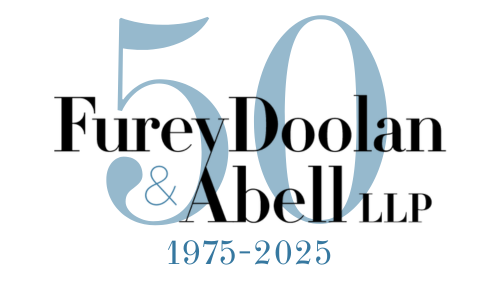LegalTimes profiles Philip O’Donoghue as one of the D.C. area’s top trusts and estates lawyers.
Excerpted
Few people like to think or talk about death—least of all their own. Yet the 12 lawyers profiled in this issue’s installment of LegalTimes’ ongoing Leading Lawyers series have a gift for making clients feel comfortable enough to discuss the most personal and difficult of matters. Without fail, the trusts and estates lawyers named in this issue were cited by clients as people with extraordinary listening skills and a knack for grasping and helping to carry out clients’ wishes.
This sometimes entailed establishing a foundation to allow a family’s wealth to be used for charitable causes for years to come. At other times, it involved creating a trust that would allow the client to pass on as much of his or her wealth as possible to future generations. In all instances, it involved tapping a host of legal and personal skills to help navigate clients through a maze of laws and regulations.
As with any list purporting to deliver the leaders in any field, some readers may disagree with our selections. Yet it’s important to note that we attempted to touch all of the bases in reporting this article. Reporter Christine Hines started with leads provided by readers and sources. She then conducted dozens of interviews with clients and lawyers and other professionals with knowledge of the field. In the end, we chose the 12 lawyers profiled in this section based on our reporting.
Philip O’Donoghue, Furey, Doolan & Abell
Chevy Chase, Md.’s Philip O’Donoghue likens his estates and trusts practice to “working through a puzzle and putting the pieces together.”
Whether it’s uncovering the best tax strategies for estates,or representing parties in estates and trusts litigation, O’Donoghue, 54, says he enjoys solving the problems in a practice where “nothing is ever the same.”
O’Donoghue advises clients on estate planning and estate administration matters, and the tax liabilities relating to their estates. While different trusts and estates lawyers have different emphases in their practice, O’Donoghue appreciates working on the tax issues.
Trusts and estates law runs in the family for O’Donoghue. His father, Daniel, was also a trusts and estates lawyer. Although father and son never worked in the same firm, they did work together on some client matters.
A graduate of Georgetown University Law Center in 1976, O’Donoghue joined D.C.’s Covington & Burling in 1977, after clerking for Chief Judge William Jones of the U.S. District Court for the District of Columbia. A few years later, he moved to 18-lawyer Furey, Doolan & Abell, where he is now a partner. He has wealthy clients who acquired their assets in a variety of ways, including real estate investments, professional jobs or businesses, inheritance, and savings. One client earned no more than $60,000 a year, but accumulated $4 million just by saving, O’Donoghue says.
O’Donoghue, though not a litigator, also works on cases where estates are in question. Heated disputes can arise from poorly written wills or simply by the sheer amount of money at stake, he says. O’Donoghue often writes briefs for motions and appellate practice in lawsuits, but trial lawyers in the firm will manage those cases, he says.
Still, litigation can prove costly for individuals, so most of the time the issues are resolved outside the courtroom, O’Donoghue says.
O’Donoghue says working through the family dynamics in his practice is one of his biggest challenges. The interpersonal issues between family members can become contentious. In those cases, “trusts and estates lawyers can do a lot of good by being a peacemaker.”
Kenneth Foster Jr., a retired senior vice president and trust officer of Riggs Bank, is familiar with O’Donoghue’s estates and trusts practice, having worked with him for 25 years as Riggs Bank served as executive trustee and executor of estates. Foster, while settling these estates, would work with lawyers who had mutual clients. Foster calls O’Donoghue one of the best at his job, commending O’Donoghue’s ability to draft documents that fit a client’s needs. “He understands the business, which not all lawyers do,” Foster says.
O’Donoghue also has a talent for understanding the workings of real estate and other entities, Foster says. “He understands strange and interesting assets, and we had a lot of those with Riggs,” Foster says.
O’Donoghue was chair of the Maryland State Bar Association’sTrusts and Estates Section, as well as a member of the D.C. Estate Planning Council and the Suburban Maryland Estate Planning Council. He also is a fellow of the American College of Trust and Estate Counsel, an organization of a select group of estate planning and probate attorneys.
Despite the credentials, perhaps the best commentary on his work, he says, would come from a client who values his advice or when “someone who doesn’t generally like lawyers likes you.”
